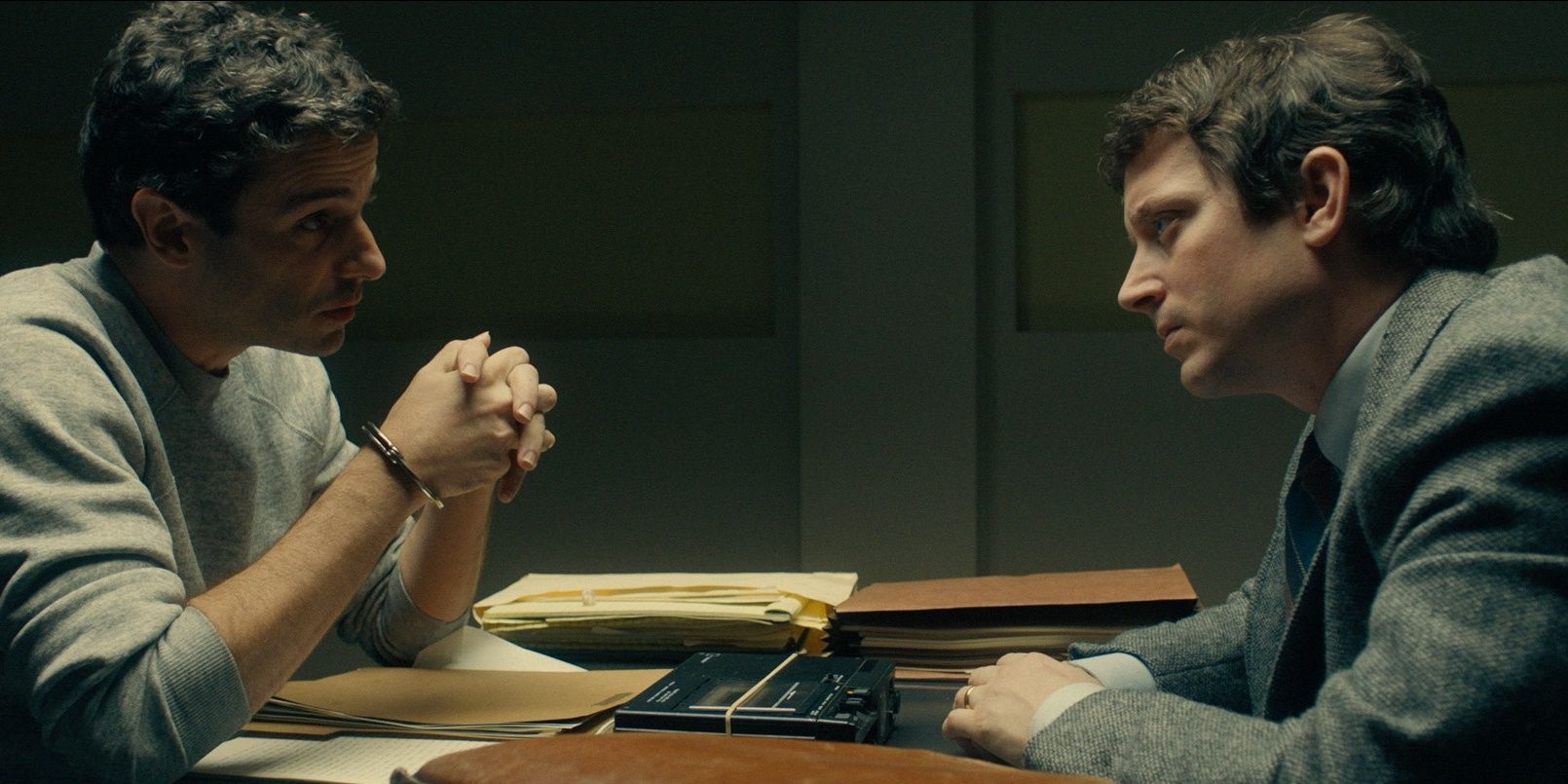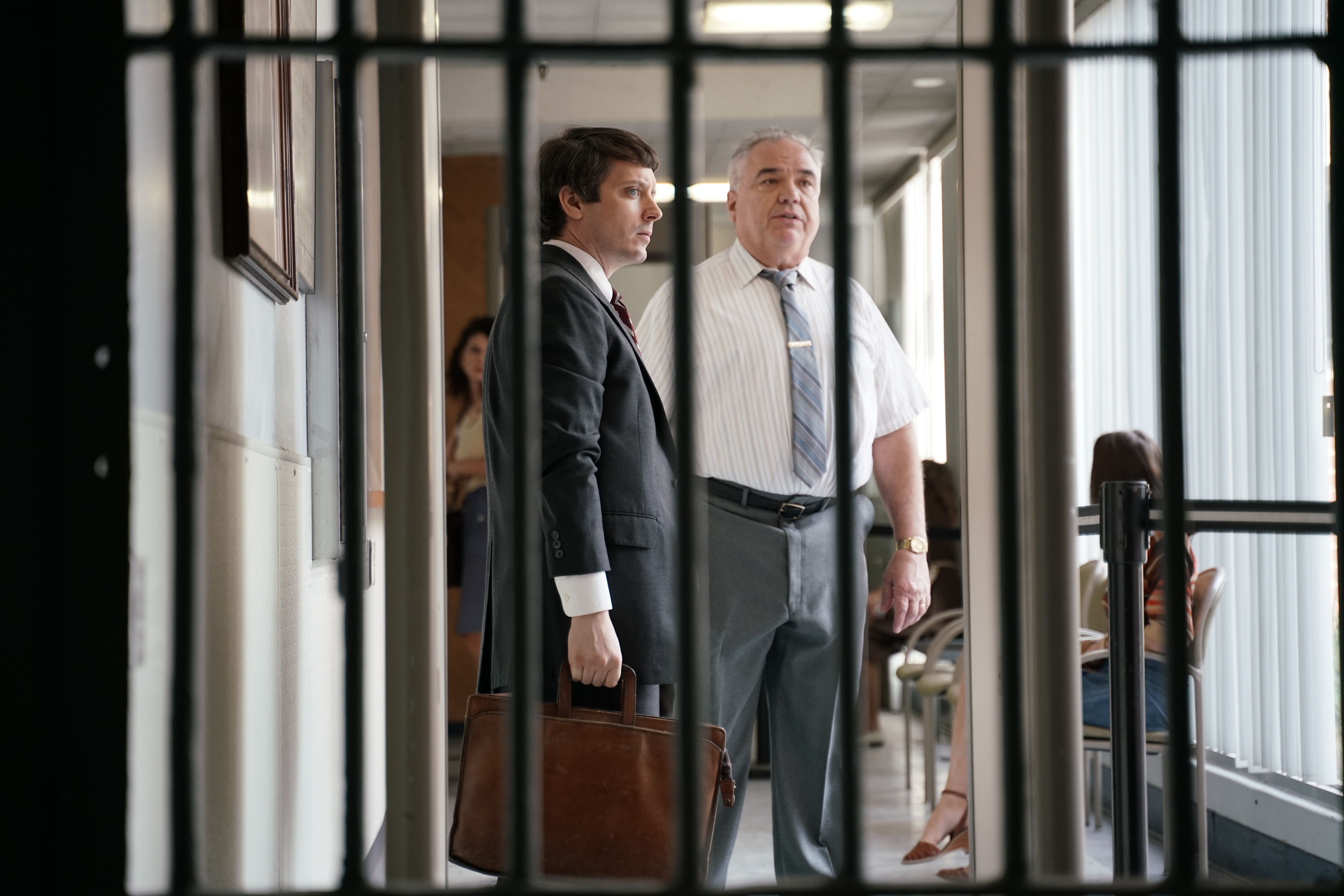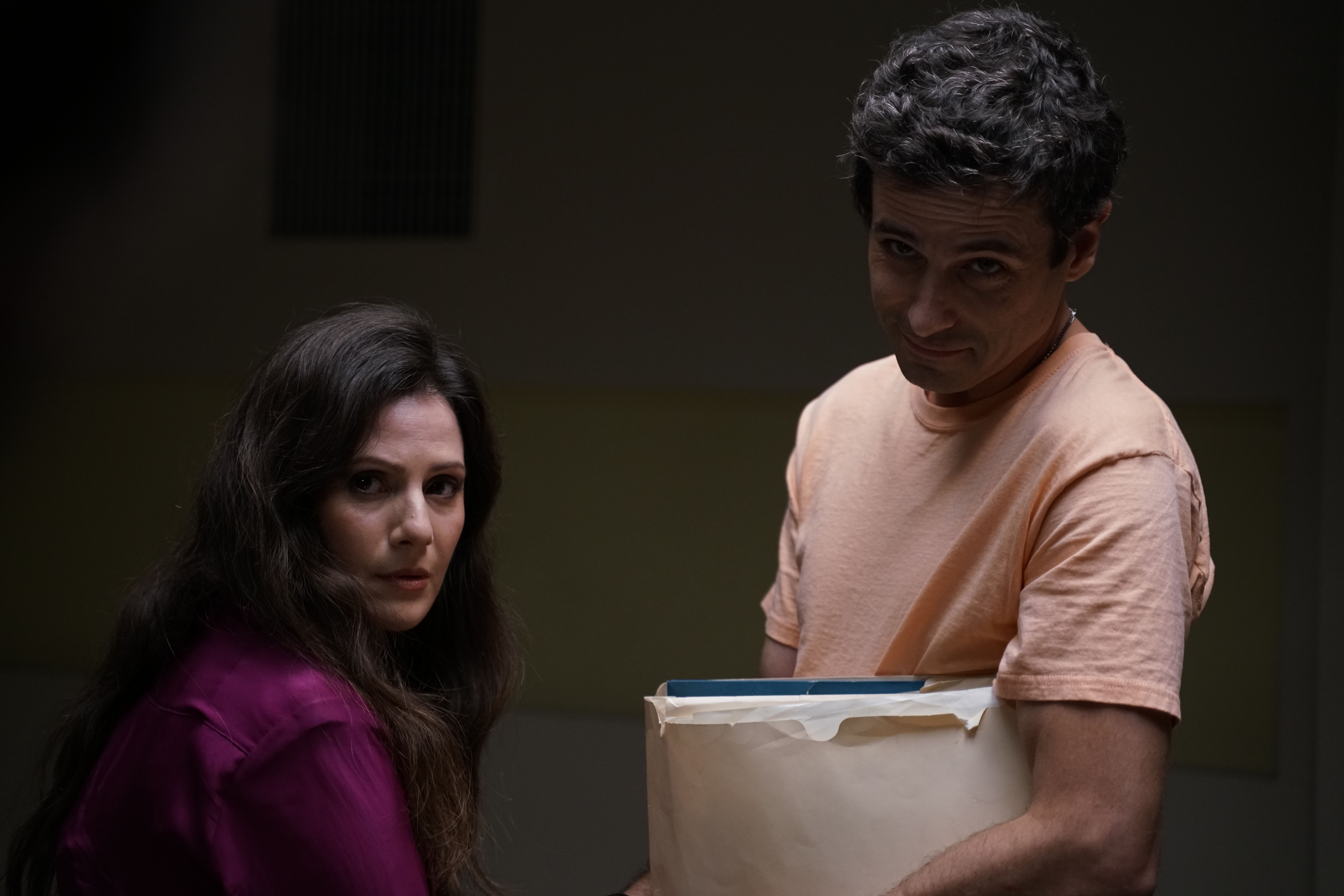
Pop culture has probably had enough of Ted Bundy. In 2019, Netflix released Joe Berlinger's feature film Extremely Wicked, Shockingly Evil and Vile, starring Zac Efron as the notorious serial killer, as well as Berlinger's four-part documentary series Conversations With a Killer: The Ted Bundy Tapes. This month sees the release of two new movies about Bundy, including director Amber Sealey's No Man of God, which premiered in June at the Tribeca Festival. That's in addition to 40 years worth of Bundy movies, documentaries, and TV series.
So, Sealey already has an uphill battle in making No Man of God feel fresh and relevant. It doesn't help that the movie's central dynamic pulls from one of film's most iconic killer-investigator relationships -- Hannibal Lecter and Clarice Starling in The Silence of the Lambs. Bundy (Luke Kirby) is no Hannibal Lecter, and FBI agent Bill Hagmaier (Elijah Wood) is no Clarice Starling or even Will Graham from the Hannibal TV series. Both characters are closer to fitting into Netflix's Mindhunter, a series that was also inspired by real-life agents in the FBI's Behavioral Science Unit who were tasked with defining how serial killers worked.
No Man of God plays like an extended Mindhunter episode, with the familiar set-up of an overly eager FBI agent grilling a prickly sociopath. Like Mindhunter, No Man of God is structured around prison conversations between its two main characters. Over the course of four years, Hagmaier interviews Bundy while he's incarcerated in a Florida prison awaiting execution. Hagmaier is one of the first agents to join the newly established BSU and volunteers to create a psychological profile of Bundy when no one else will. The warden (W. Earl Brown) of the prison holding Bundy tells Hagmaier that Bundy won't talk to the FBI, but Hagmaier establishes a rapport with him based on what Hannibal would call "quid pro quo."

Like Lecter, Bundy fancies himself an amateur profiler. Hagmaier connects with Bundy by allowing him limited access to ongoing investigations into other serial killers. Although he was convicted and sentenced to death, Bundy hadn't confessed to any crimes as of 1985 -- when Hagmaier starts visiting him. Part of Hagmaier's mandate from his boss (Robert Patrick) is to get Bundy to admit to his crimes and provide closure for the families of his many victims. But that goal takes a backseat to what could be a stage play between two characters in a single room, as Bundy and Hagmaier open up about their respective childhoods and inner demons.

Kirby is suitably creepy yet charismatic as Bundy, and Wood is solid as the upstanding, religious family man Hagmaier. The pair create believable chemistry between these two very different people. Sealey is less successful at portraying Bundy as a sort of mesmerizing, cult leader-like figure, and fantasy sequences in which Bundy convinces Hagmaier to imagine himself as a potential killer, eyeing women he sees on the street, are unconvincing. No Man of God's climactic set-piece involves Bundy putting Hagmaier into a trance-like state as Bundy finally opens up about his mindset and methods for his murders, but making Bundy into an almost supernatural boogeyman robs him of his far more chilling real-world resonance.
No Man of God works best in its first half when it's mainly focused on the conversations between Bundy and Hagmaier, showing how these two men could actually become friends in a strange way. Seeing them both as regular guys emphasizes how insidious Bundy's murders were. Hagmaier isn't ever fooled by Bundy, exactly, but he seems to genuinely like the guy at times, as a means to understand why Bundy did what he did.
No Man of God makes a number of abrupt leaps in time in order to cover four years in 100 minutes. Despite onscreen titles that indicate the passage of a year or two, the filmmakers never convey any development or progression in the characters. The entire second half of the movie takes place in the week leading up to Bundy's execution when he finally decides to come clean about his crimes, and Hagmaier is in charge of coordinating investigators who arrive from multiple states. That takes away from the central dynamic between the two main characters, and the relatively low-budget production, which relies on plentiful stock footage to transition between scenes and time periods, has trouble establishing the scope of the investigation and media circus surrounding Bundy.
Despite the two commendable performances at its core, No Man of God never finds a new angle on Bundy or on serial killers in general, fitting itself into the cracks between other more prestigious and accomplished works. In Hagmaier's efforts to truly understand Bundy, what he ultimately learns is that someone like Bundy can't really be understood. That was undoubtedly an important lesson for the real-life Hagmaier, who went on to a successful, lengthy FBI career, but it doesn't add anything to what dozens of serial killer stories have already said, in more compelling and creative ways.
Starring Elijah Wood, Luke Kirby, Aleksa Palladino, Robert Patrick and W. Earl Brown, No Man of God opens Friday, August 27 in select theaters and on VOD.
0 Comments